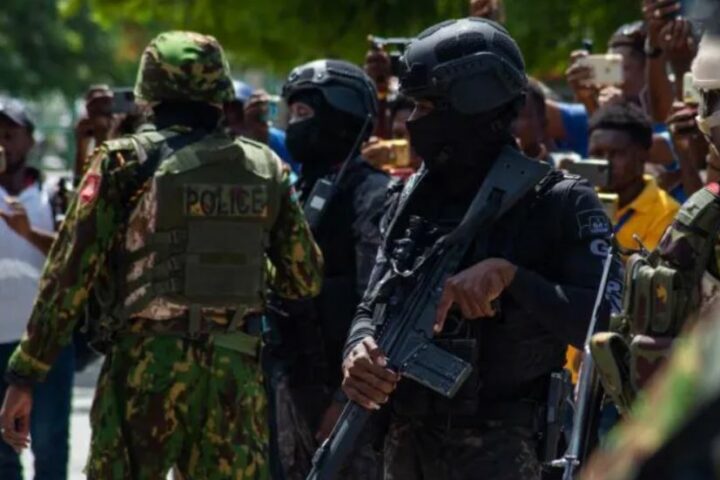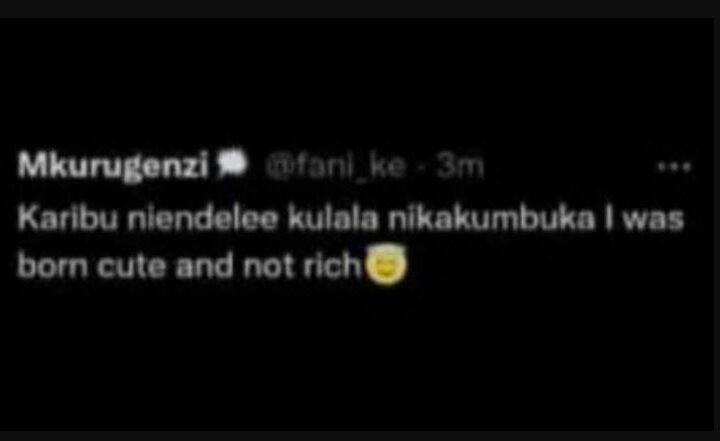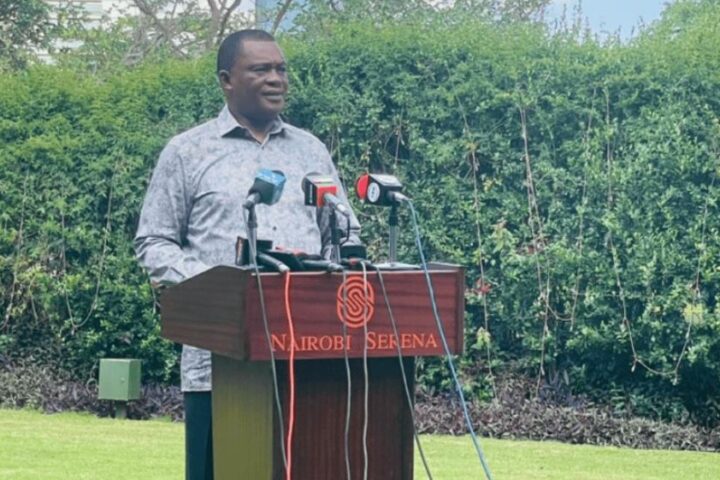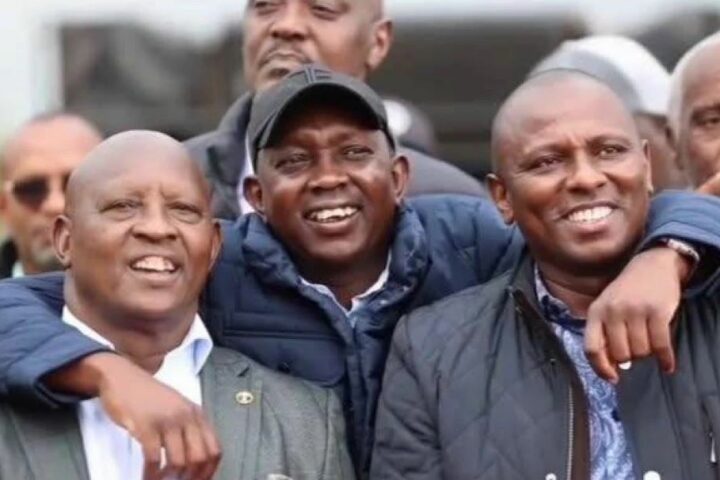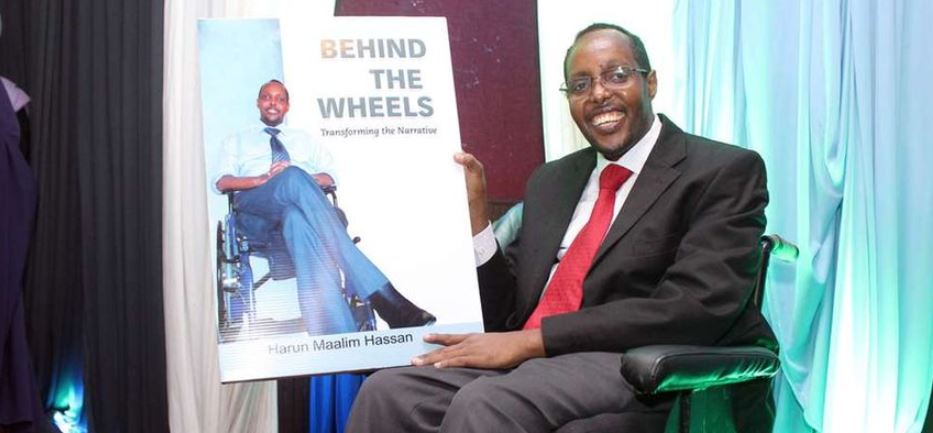 Harun Maalim Hassan is the Executive Director at the National Council for Persons with Disabilities (NCPWD). He also co-founded the Northern Nomadic Disabled Persons’ Organisation (Nondo), an organisation focusing on persons with disabilities in nomadic communities.
Harun Maalim Hassan is the Executive Director at the National Council for Persons with Disabilities (NCPWD). He also co-founded the Northern Nomadic Disabled Persons’ Organisation (Nondo), an organisation focusing on persons with disabilities in nomadic communities.
Maalim also served as a Commissioner with World Disability Union (WDU), Ford Fellow, Indiana University (USA) and is a member of US-based global think-tank Association for Research on non-profit and Volunteer Association (ARNOVA) and continental think-tank Association for Research on Civil Society in Africa (AROCSA).
He is also a certified Motivation-UK peer educator. Hassan writes extensively about disability and does talks on the same globally. He has also authored a book that seeks to tell the story of disability differently. He shared his Career Path with nation.africa.
Briefly tell us about yourself
My name is Harun Maalim Hassan. I was born, brought up and schooled in Mandera. I’m married and a family man who lives in Nairobi. I am currently the Executive Director at the National Council for Persons with Disabilities (NCPWD), a state agency established by the Persons with Disabilities Act of 2003 that endeavours to promote and protect the rights of persons with disabilities. I’m new in this role, barely two months in office.
Tell us about your childhood and family life
I come from a polygamous family. My father in his lifetime got married 11 wives, four at any one time according to Islamic faith. We were many children, but I am the lastborn of my mother.
Educational background
I schooled in Mandera Boys Town Primary School, and did my KCPE in 1992 and emerged top of my class. My dream school was Starehe Boys Centre. They paid for my school fees but did not admit me, so I did my KCSE at Mandera Secondary School. Ours was a large class, perhaps the largest in that school at that time. Out of 128 students, five went to university. I was one of them. Two went to Kenyatta University, two to Moi University and one to University of Nairobi.
The Joint Admissions Board had earlier sent me to Maseno University to do Bachelor of Arts in Drama and Theatre Studies. However, I transferred to Kenyatta University and graduated with a Bachelor’s Degree in Environmental Planning and Management.
Share with us your career journey
I have worked and volunteered in various areas including non-governmental organisations. I would later become a District Officer and worked for many years. It is during this time that I was involved in a terrible road accident through which I suffered a spinal cord injury and became a wheelchair user. I spent one year in hospital, and another in our rural home confined in a small room, depressed and feeling hopeless.
What do you remember most about your career journey?
I was a young man conflicted with career choices. From the drama and theatre studies, to environmental studies, turned down a job opportunity as environmental officer at NEMA, became a public administrator and environmentalist, then the accident happened.
That accident revealed where I truly belong career-wise, and that of understanding disability and its management in diverse institutions such as government, civil society etc. I became engrossed in reading on disability issues.
This process served as a therapy for me, because it shifted the focus from me to something bigger – a greater purpose. I started dropping my profession as a public administrator, and immersed myself into the world of disability movement and understanding disability lifestyle.
Alongside others, I then formed an organisation with a focus on persons with disabilities in nomadic communities called Nondo (Northern Nomadic Disabled Persons’ Organisation). This has provided a platform to raise awareness for people with disabilities in the most marginalised parts of Kenya.
I write extensively about disability in the media and do presentations and talks on the subject around the world.
I have authored a book which is currently being published by the Kenya Literature Bureau for the schools. The Kenya Institute of Curriculum Development will be evaluating it very soon. This book tells the story of disability differently, and how it can be incorporated not just as an issue of disability mainstreaming but also as a whole subject and career in colleges and universities, just the same way we study subjects such as gender and youth affairs.
What has been the key driver to your growth? Lessons learnt, highlights and failures?
The key drivers in my life are my parents. My mother brought me up away from our rural home, while my father stayed in our rural home with our animals, goats and sheep. Since I was away from my father, my mother didn’t tell me why my father was away. She was protecting me from growing some sort of a grudge with my dad. She therefore strived to give the very best of what my dad couldn’t since he was not around. She always told me, “Aspire always to be the best among your peers and friends.”
I would later become very close to my dad. He was a very wise man and a Quran teacher who was very popular and honest in both words and deeds. He would say things the way he saw them. He would tell me, “Be good to everyone. Don’t allow people to demean you and don’t demean others.” He encouraged me to do what I do to my level best, and to do it today without postponing. So my parents inspired me differently in their own unique ways.
Any key decisions you might have taken along your career?
One, was to drop my role in public service and joining an outfit (Nondo) that was just beginning, all because of my passion for the disability sector. It would end up growing into a very big organisation.
Two, no sooner had I received admission to do my PhD at the London School of Hygiene and Tropical Medicine than I got this job. I decided that, since I had been in the movement for 10 years, and this is a crucial office in the sector, I would serve at NCPWD. This would enable me to drive an agenda that I couldn’t push while outside of government.
Your current role, and scope
As the Chief Executive Officer, my work entails ensuring that the strategic objectives of the Council are implemented and providing leadership for achieving the Council’s mandate which include recommending measures to prevent discrimination against persons with disabilities.
What would you tell your younger self?
When young, you have lots of energy. Youthfulness is a blessing. It’s good to explore many things until when you discover your true mission. Be serious with your life. Some decisions you make in your youth have consequences that are irreversible. So be watchful and focused in those blossoming years of your youth. I would also have married very early! I’d encourage youths to start their marriage lives early, and begin planning their lives early enough.
What would you advise the youth in Kenya and Africa today?
Don’t go to college or university just because you’re looking for a job. Create your own job and opportunities. If you get a job, leave a mark as a youth. Do your best. Infuse a youthful spirit and attitude in your area of work. The youth are the backbone of this country and the continent. Don’t allow to be misled and used by politicians for their own personal political gain.
Your future plans career-wise?
I aspire to go back to university, do my PhD and get into teaching.
Anything else you wish to add?
Life can throw unexpected shocks at you, but it is how you respond that matters. As they say, when life gives you lemons, make lemonade. Remember, how you see yourself, is how the world will see you. Always have belief and confidence in all you do.

